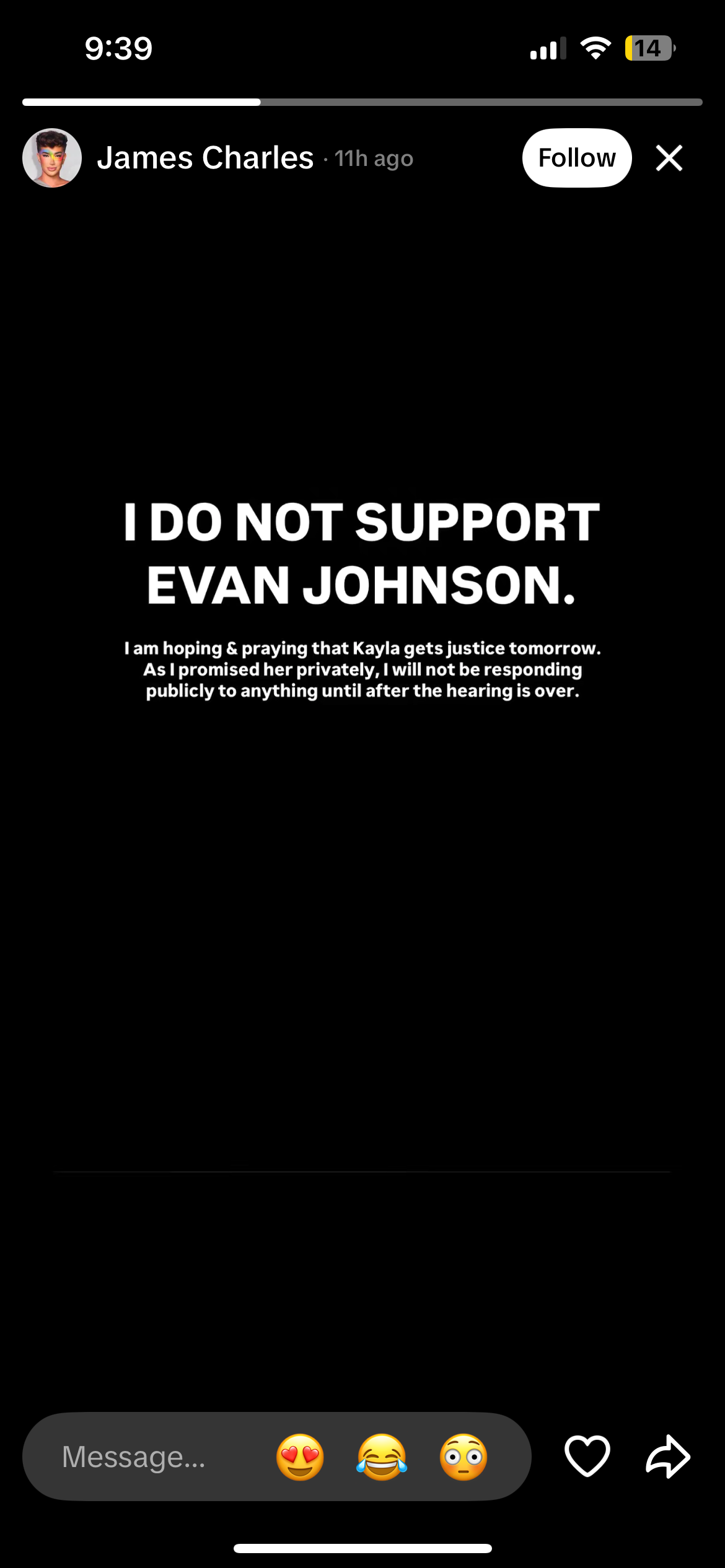The Real Story Behind Evan Johnson and James Charles: Allegations, Responses, and Online Fallout

When news involving Evan Johnson and James Charles broke on social media, the internet quickly became divided. Allegations, responses, and mass unfollowing trends catapulted their names into headlines and feeds everywhere. In this article, we'll explore what really happened, how James Charles responded, and why so many social media users are invested in the story.
The Emergence of Allegations
In early May, serious accusations surfaced linking TikToker Evan Johnson with James Charles. These allegations revolved around Johnson allegedly assaulting his ex-girlfriend, Kayla Malec. The talk of a potential romantic relationship between Evan Johnson and James Charles added to the narrative.
The rumors quickly caught fire, leading fans and critics alike to question the nature of their relationship. Social media platforms, especially TikTok, saw countless videos and threads discussing each new development. It soon became clear this was not just another internet rumor but a situation that required clarity from those involved.
James Charles Sets the Record Straight
In response to the swirling rumors, James Charles addressed the situation directly. On May 7, he posted a video stating, "I do not support Evan Johnson in any way, shape or form, and let me make that clear." He acknowledged a brief friendship with Johnson, but denied any sexual or romantic involvement. Charles also firmly stated, “I did not under any circumstances pay Evan Johnson for sexual favors.”
Charles was keen to distance himself from Johnson’s actions and expressed support for Kayla Malec. He condemned Johnson's alleged behavior and revealed he had tried contacting Malec to share his side of the story. Charles emphasized that misinformation about his involvement had been spread and that he would be taking legal action against those propagating it. To get the detailed account of James Charles's response, see the full coverage by Her Campus.
How the Internet Reacted: Mass Unfollowing and Misinformation
As the evan johnson james charles controversy unfolded, users across TikTok and other social media platforms started mass unfollowing James Charles. This trend sparked conversations around online accountability and the speed with which internet communities respond to serious allegations. To understand why many users chose to unfollow, explore insights from MSN’s analysis.
It’s important to note that much of the initial information came from third parties, including Johnson’s former friend Zack Sellars. Videos, interviews, and discussions contributed to a flurry of misinformation. James Charles called these claims "complete bullsh*t" and maintained there was no evidence to support them. He reiterated that he would pursue legal steps against those spreading falsehoods.
Final Thoughts: What This Means for Online Culture
The story of Evan Johnson and James Charles underscores how online narratives can rapidly shape public perception. Quick reactions, mass unfollowing, and viral claims highlight the importance of transparency, direct responses, and fact-checking in digital spaces. As social media continues to amplify voices, attention to verified facts and responsible sharing becomes even more crucial.
Stay updated on this story as it develops. Remember to question sources and keep an open mind when following high-profile controversies online.